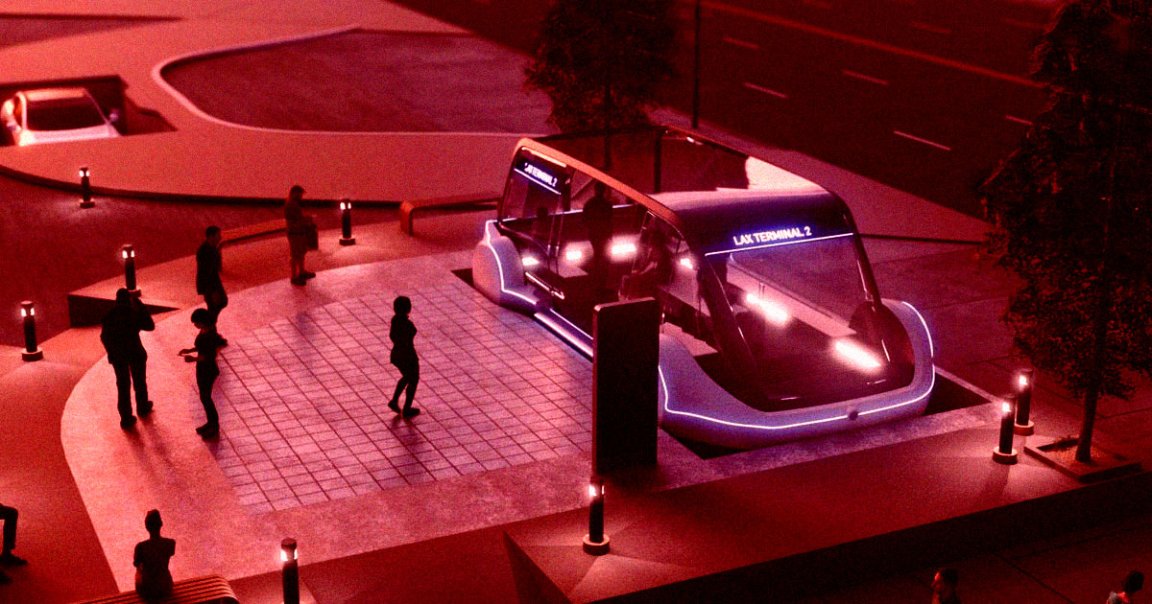
It’s no secret that Tesla CEO Elon Musk struggles to get his homework done on time.
After Reuters reported that the EV maker had given up on its much-cheaper Model 2 consumer vehicle to focus its efforts on a “robotaxi” instead, Musk initially denied the reports — only to confirm the robotaxi part just hours later.
“Tesla Robotaxi unveil on 8/8,” he tweeted last week in a characteristically vague and short-on-details announcement.
The shot-from-the-hip declaration might have come as an unpleasant surprise to certain employees at the carmaker. As NBC reports, not a single agency that regulates robotaxis in the US has yet heard from Tesla about any impending driverless services.
“Tesla has not applied for a deployment permit with the DMV,” the department told NBC.
The California Department of Motor Vehicles and the California Public Utilities Commission (CPUC), which has the final say when it comes to robtaxi services in the state, also has yet to hear from Tesla.
In other words, one of Musk’s ventures has once again failed to square an ambitious project away with regulators ahead of time (we’re looking at you, Neuralink).
Of course, Musk is promising a robotaxi, not a robotaxi service. But while the carmaker has four months to scrounge together a vehicle to show off on stage, it likely won’t hit public streets for quite some time.
“Tesla’s a long way away from getting that approval,” autonomous vehicle industry consultant Brad Templeton told NBC, adding that it could take at the very least eight months.
Tesla has made at least some progress in developing autonomous car tech. The carmaker’s Autopilot advanced driver assist suite allows drivers to temporarily take their hands off the wheel, make turns, and enjoy adaptive cruise control. A purely camera — and not LIDAR — based system can react to changing road conditions and adjust speed accordingly.
The company’s far more contentious — and misleadingly-named — Full Self-Driving add-on has already drawn plenty of scrutiny from regulators, which will likely stand in the way of the establishment of a robotaxi service.
In short, the company already has lost a considerable amount of goodwill that launching a driverless taxi business on public streets will likely require.
Musk has also been unsuccessfully trying to license the so-called self-driving software to other carmakers, despite the company being actively investigated by the National Highway Traffic Safety Administration and the Justice Department.
Does Tesla actually have a plan to launch a “robotaxi” in less than four months — or is it yet another blatant attempt by Musk to raise morale among Tesla investors?
The company is staring down the barrel of a “nightmare” year ahead. First-quarter delivery results already missed the mark considerably, with a surge of competitors, particularly from China, eating up larger shares of the global EV market and undercutting the company’s offerings.
Wells Fargo analyst Colin Langan called Tesla a “growth company with no growth” in a scathing report last month.
Even if Tesla were to magically make a robotaxi appear overnight, getting it on the road as part of a robotaxi fleet will be a substantial undertaking. Other competing services from the likes of Cruise and Waymo have already hit major headwinds, causing mayhem on the streets of San Francisco.
A horrifying event last fall involving a crushed pedestrian led to Cruise yanking all of its robotaxis off the roads.
Will Tesla, a company that’s relying on far less sophisticated, camera-based hardware, fare any better?
As always, we should approach Musk’s declarations with plenty of skepticism. After all, who could forget that the mercurial billionaire previously promised to launch a robotaxi by 2020, which is now four years in the rearview?
“I feel very confident predicting autonomous robotaxis for Tesla next year,” he announced at a 2019 event. They won’t be “in all jurisdictions, because we won’t have regulatory approval everywhere, but I am confident we will have at least regulatory approval somewhere, literally next year.”
At the time, Musk said Tesla would have over one million robotaxis on the road by 2020 “with no one in them” — a massive misjudgment, even for him.
“Sometimes I am not on time,” he added, “but I get it done.”
More on Tesla: Messiest Exes on Earth Elon Musk and Grimes Are Flirting Again